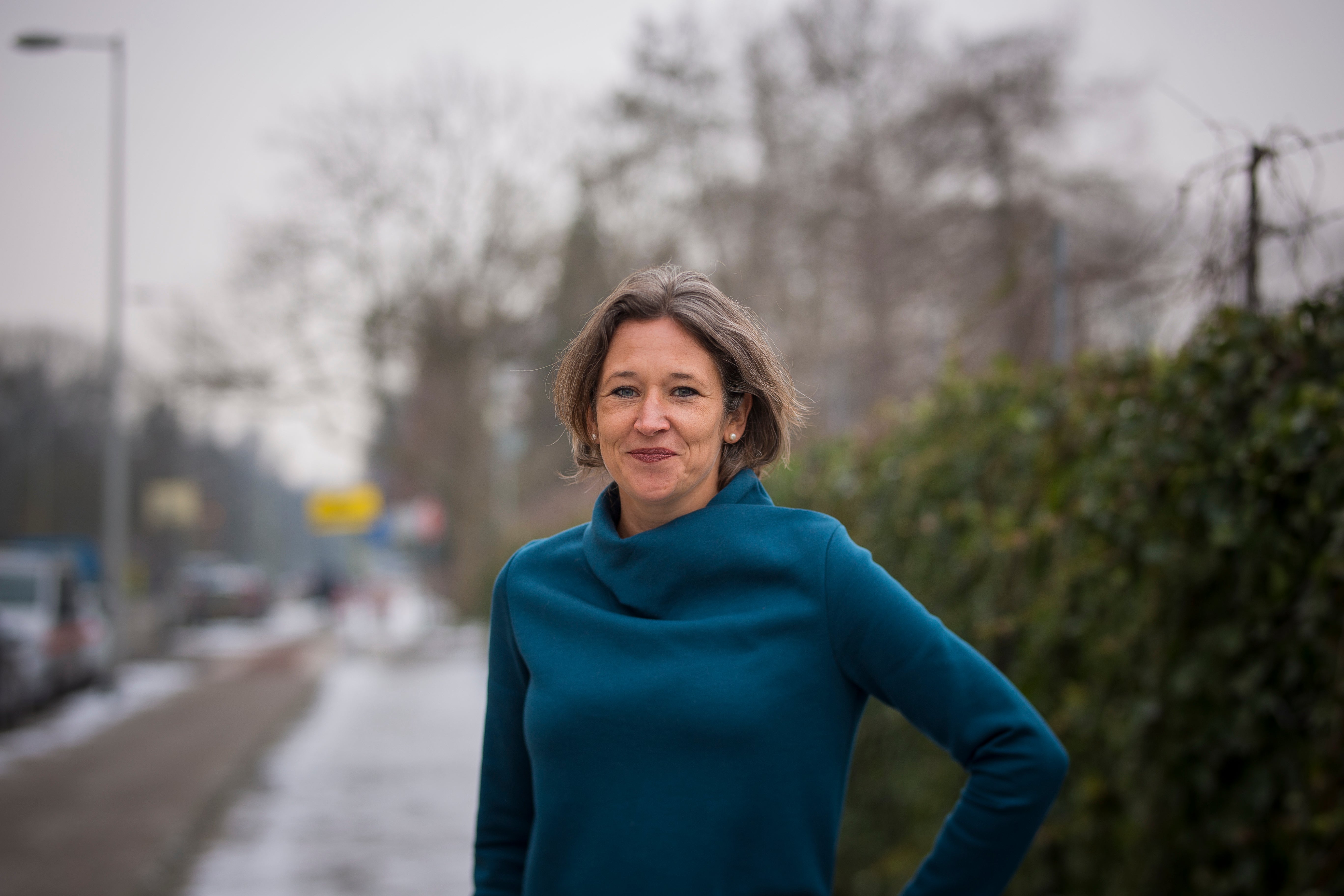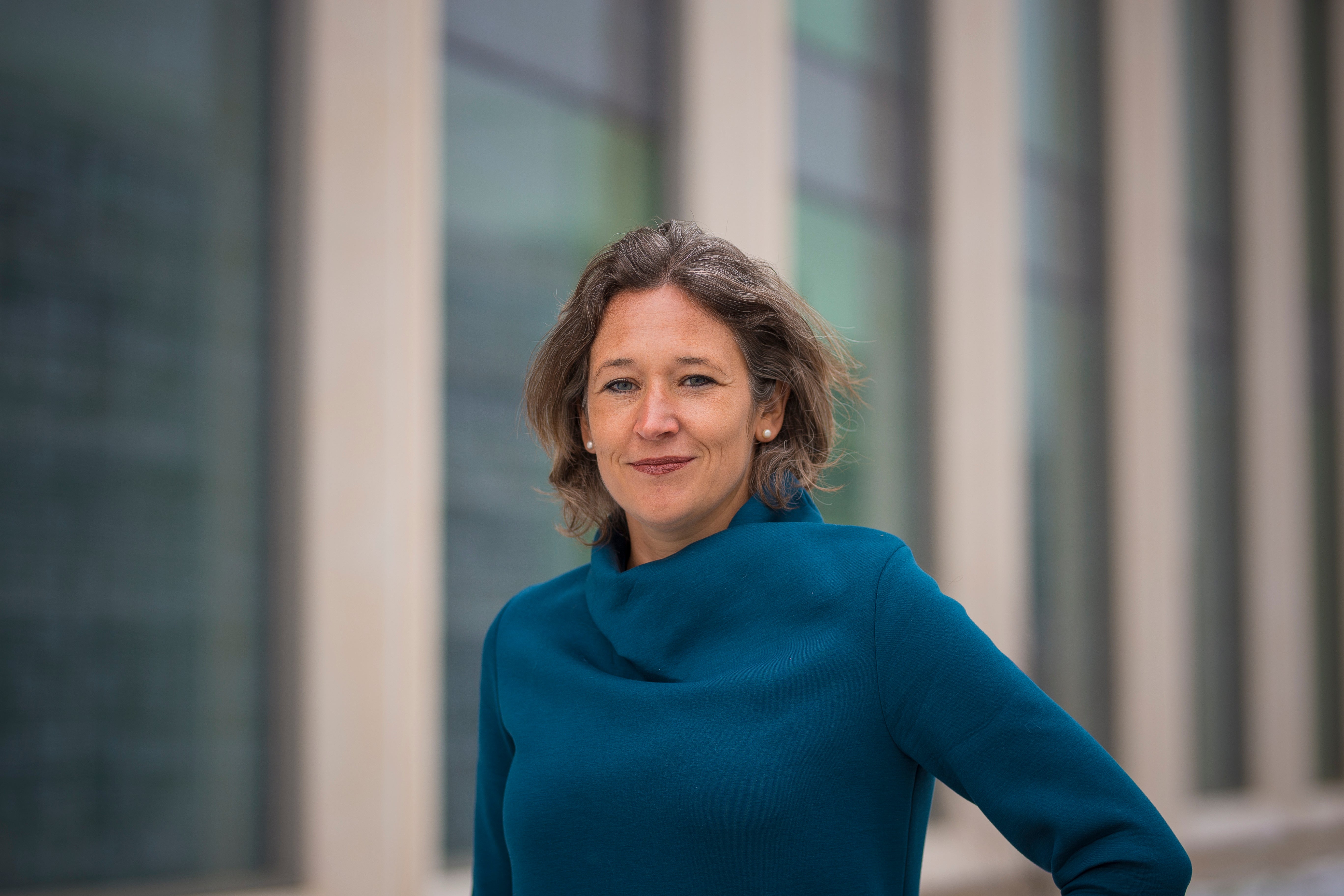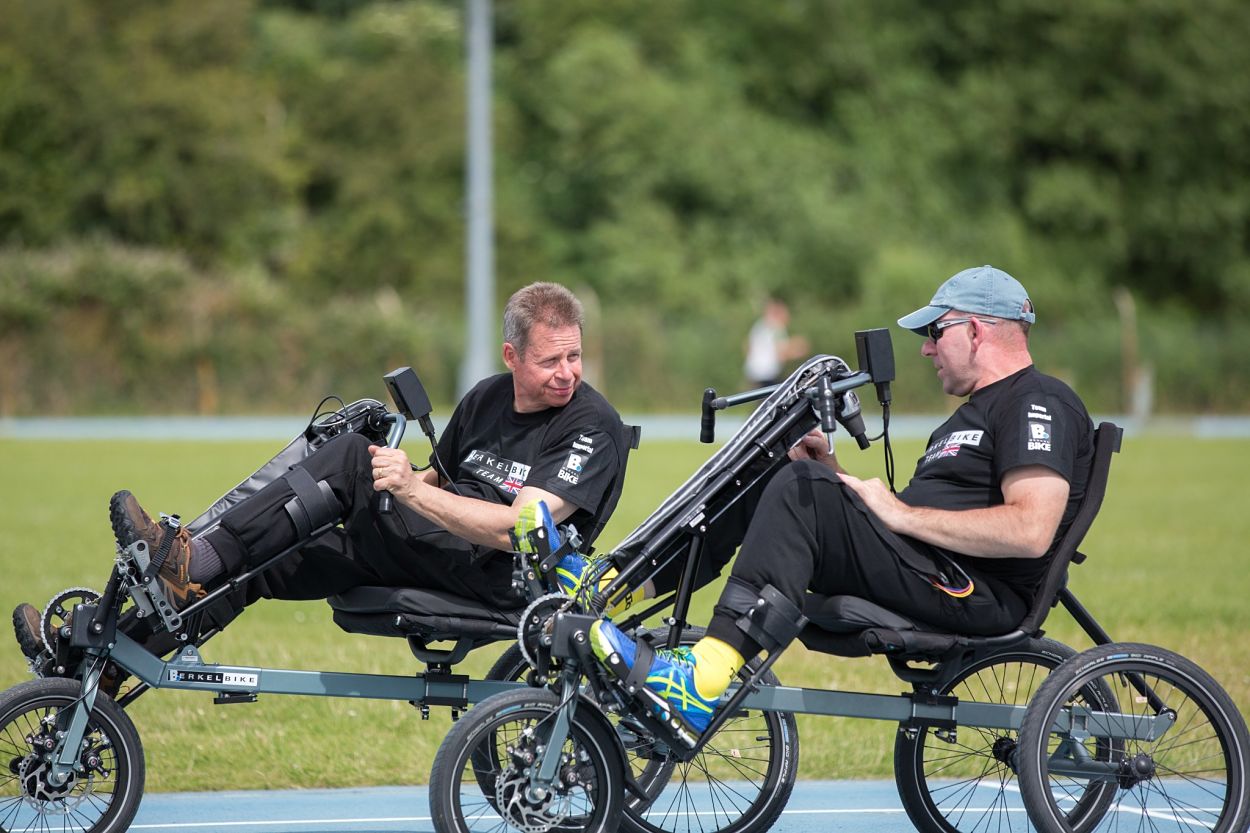Professor Andrea Maier (40) is professor of aging at VU University, was the youngest person to ever be appointed professor of internal medicine when she was 33 years old, and has recently published a book, titled Eeuwig Houdbaar (No expiration date), which explains how we can stay healthy for as long as possible.
“Usually I take the stairs, but I’ve just come off a long flight”, Maier apologises as we head to the sixth floor of the VU for the interview. After all, Maier argues that plenty of exercise is one of the ways in which we can extend our lifespan without falling ill. Naturally, we’re incredibly curious about the other ways as well.
You recently authored Eeuwig Houdbaar (No expiration date). Did you think: ‘I have to make this topic accessible for a wider audience?’ “The romantic answer to that question is ‘yes’, but, in fact, so many people were asking to interview me or e-mailing me with questions, that I felt I just had to write the book. All that’s happened now, though, is that people ask me when I’m publishing the next one!”
Where do you think our fascination for aging comes from? “It’s a disease with a prevalence of 100%: you’ve got it, and so do I. It affects everyone. Most people who contact me are about 50 years old, followed by a large group of 75-year-olds who are still very lively and want to stay that way. The third major group consists of 30-somethings who are extremely worried about the future.”
“As an internist, I see ageing as a disease."
You call old age a disease. Can you explain? “As an internist, I see ageing as a disease. Medically speaking, you can see how bodies change and you know that these changes will ultimately lead to diseases and the use of medication. If you know how to delay or slow down that process, you have to call it a disease. Otherwise, medical interventions would be impossible, because you’d never intervene in processes that are good. That’s why it needs the label. If the pills that are currently being developed to combat aging are to be tested on humans, we have to label it a disease.”
But is aging a bad thing? “That depends on the person. I’m perfectly fine with my hair turning gray, it doesn’t matter to me. Most people do, however, find it annoying when they’re no longer physically or mentally capable of doing the things they used to, especially when it impacts their life on a day to day basis. Imagine not being able to go out for groceries, stand up by yourself or wash yourself.
People are very good at compensating for things when they first start to notice the initial phases of the aging process, between the age of 20 and 50. If you’re no longer capable of climbing five flights of stairs, you just take the elevator. Because there’s a different way to complete the same task, you don’t experience it as a real limitation. It’s only after we turn 70 that big, complex things start becoming difficult. By then, it’s already too late to turn things around. If you create awareness of the aging progress at a young age, you can intervene earlier, which is very important.

The second parameter is how many diseases you have: in the eyes of society, it’s not unusual for 50-year-olds to take pills for cholesterol, blood pressure and, possibly, diabetes. How great would it be if we didn’t have to take these pills until we were 70? My research focuses on how we can get people to continue doing what they love for as long as possible, preferably without diseases, in order to reduce the costs of healthcare.”
"Joining a class for seniors won’t help.”
Which aspect of aging do you dread the most? “I don’t dread aging, because I’m so aware of it. I recently turned 40, but I’m still struggling to believe it, because I don’t feel 40 at all. I’d like to be biologically younger, which is why I emphatically look for exercise classes that lots of young girls take in Melbourne. Taking these classes shows me what I can’t do anymore, and what I’d like to be able to do again. Your benchmark should be people who are younger than you: joining a class for seniors won’t help.”
Lots of exercise sounds like an easy solution for old age. Why is it so difficult in practice? “Because we’re all intrinsically lazy. Sometimes, we need to reflect to feel that stimulus for exercise. Actually, I should get a weekly reminder of how active I’ve truly been. We all have the tendency to overestimate ourselves both physically and mentally. If I ask you how tall you are and how much you weigh, you’ll tell me you’re taller and lighter than you really are. When I ask you how much exercise you get, you’ll always tell me that you exercise more frequently than you really do. We know which answers are socially desirable and there’s no-one to check whether you’re speaking the truth. There’s no objective benchmark yet,
and the consequences of certain lifestyle choices are very intangible. I could decide to stop exercising and start eating more now, without realising what that will mean in the future. If I knew that this choice would mean I’d be dependent on care in ten years’ time, or develop a disease, I might make a different choice.
Do you have any other tips to help us live a long, healthy life? “We know that nutrition is incredibly important, as is good sleep hygiene: sleep frequently and get high-quality sleep. At the same time, you have to be able to indulge, even in things that may not be good for you. I eat French fries every week, for example, and although it means I might not make it to 200, it’s still a conscious choice. That’s the best advice I can give: take control of your own body and life.”








